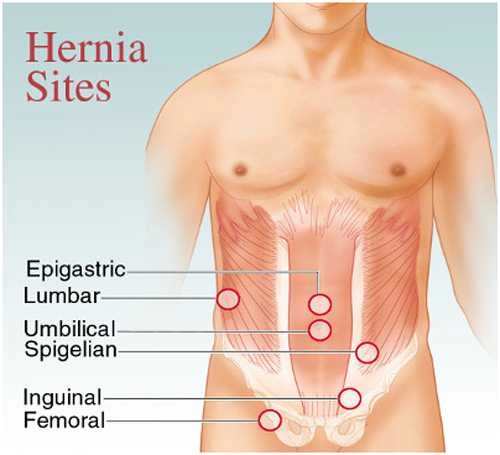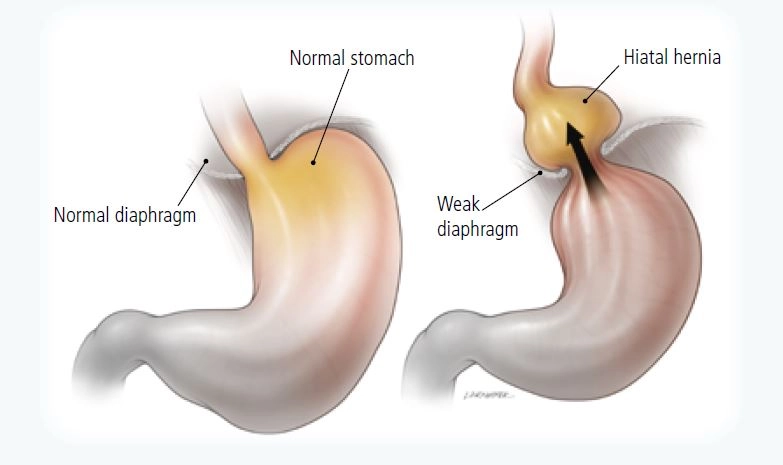
Presize Clinic
Call : +(91)-8888655455
Mail : presizeclinic@gmail.com
Address : Office No 303, Shivai 1, Sinhagad Road, Parvati Paytha, Landmark Nearby Sarasbaug and Dandekar Pul. Pune 411028, Maharashtra, India.
1000 +
Surgeries Done
Expert Hernia Treatment in Pune – Safe, Advanced & Minimally Invasive Care

What is a Hernia?
A hernia occurs when an organ or tissue pushes through a weak spot in the muscles, often appearing as a bulge in the abdomen or groin. While some hernias cause little discomfort, they can grow over time and may lead to serious complications if untreated.
Hernias don’t heal on their own, but advanced laparoscopic surgery offers a safe, minimally invasive solution with quick recovery. Dr. Kedar is an expert hernia surgeon in Pune, ensuring effective and long-lasting relief.
What Causes Hernia?
A hernia occurs when an organ or tissue pushes through a weak spot in the surrounding muscles. The primary causes include:
Muscle Weakness
- Congenital weakness (present from birth)
- Age-related muscle degeneration
- Previous abdominal surgery leading to weak spots
Increased Pressure on the Abdomen
- Heavy lifting without proper technique
- Chronic coughing (common in smokers or lung disease patients)
- Obesity (excess weight strains abdominal muscles)
- Pregnancy (increases pressure on the abdominal wall)
- Constipation (straining during bowel movements)
Lifestyle & Genetic Factors
- A poor diet leading to weak connective tissues
- Lack of exercise, causing muscle weakness
- Family history of hernias
While hernias can develop over time, avoiding excessive strain, maintaining a healthy weight, and strengthening abdominal muscles can help reduce the risk.
What are the Different Types of Hernia?
Hernias can occur in different parts of the body, mainly in the abdomen and groin. Here are the most common types:
Inguinal Hernia (Groin Hernia)
- The most common type, occurring when intestines or fat push through a weak spot in the lower abdominal wall.
- More common in men due to natural weak spots in the groin.
- Symptoms: Groin bulge, pain during movement, heaviness in the lower abdomen.

Femoral Hernia
- Appears in the upper thigh or groin, often confused with an inguinal hernia.
- More common in women, especially after pregnancy.
- Symptoms: Pain, swelling near the groin, risk of strangulation (cut-off blood supply).
Umbilical Hernia
- Occurs near the belly button when the intestines push through the abdominal wall.
- Common in infants (usually resolves on its own) and adults with obesity or after pregnancy.
- Symptoms: Soft lump near the navel, discomfort while coughing or lifting.
Hiatal Hernia
- Happens when the stomach pushes into the chest cavity through the diaphragm.
- Common in older adults and linked to acid reflux.
- Symptoms: Heartburn, acid reflux, difficulty swallowing, chest discomfort.

Incisional Hernia
- Forms at the site of a previous abdominal surgery when the muscle doesn’t heal properly.
- Common in patients who have had major abdominal surgeries.
- Symptoms: Swelling or pain around the surgical scar, bulging that worsens over time.
Epigastric Hernia
- Occurs between the belly button and chest due to weak abdominal muscles.
- Usually small but can cause pain and discomfort.
Spigelian Hernia
- Develops along the side of the abdominal muscles, rather than the front.
- Harder to detect and may cause localized pain and swelling.
Diaphragmatic Hernia
- A rare birth defect where abdominal organs move into the chest cavity.
- Requires immediate medical attention in newborns.
If you notice a bulge, pain, or discomfort, consulting an expert like Dr. Kedar can help diagnose the type of hernia and recommend the best hernia treatment in Pune.
To understand the Types of Hernia click on the link below
Different Types of Laparoscopic Hernia Treatments in Pune Offered by Dr. Kedar
Hernia treatment depends on the type, size, and severity of the condition. The two main options are non-surgical management and surgical repair.
Non-Surgical Management
Only when the patient is unfit for surgery, a non-surgical management is advised, asthe risk of doing surgery is much lower than not doing it
- Lifestyle Changes – Maintaining a healthy weight, avoiding heavy lifting, and managing constipation can help prevent worsening.
- Hernia Belts or Trusses – Temporary support devices that may provide relief but do not cure the hernia.
Surgical Treatment
Hernias do not heal on their own, and surgery is the only permanent solution. The type of surgery depends on the patient’s condition:
a) Open Hernia Repair (Herniorrhaphy)
- A single large incision is made over the hernia.
- The protruding tissue is pushed back, and the weakened muscle is stitched or reinforced with a mesh.
- Requires a longer recovery time compared to minimally invasive methods.
b) Laparoscopic Hernia Repair (Minimally Invasive)
- Small incisions are made, and a laparoscope (a tiny camera) is inserted to guide the repair.
- A mesh is used to reinforce the weakened area.
- Faster recovery, minimal pain, and smaller scars compared to open surgery.
c) Robotic Hernia Repair
- Similar to laparoscopic surgery but performed using robotic-assisted technology for enhanced precision.
- Beneficial for complex or recurrent hernias.
Which Treatment is Best for You?
The choice of treatment depends on hernia size, symptoms, and overall health. Laparoscopic and robotic surgeries are preferred for faster recovery, while open surgery may be necessary for larger or complicated hernias. Consulting a specialist like Dr. Kedar ensures the best approach for safe and effective hernia repair.
What does someone who has a hernia experience?
Symptoms of a Hernia – What Does It Feel Like?
People with a hernia often experience the following:
Visible Bulge or Lump
- A soft swelling or bulge in the abdomen, groin, or near a previous surgical scar.
- The bulge may disappear when lying down and reappear when standing, coughing, or straining
Pain or Discomfort
- Mild to severe pain in the affected area, especially when lifting, bending, or coughing.
- A dragging or heavy sensation in the abdomen or groin.
Weakness or Pressure
- A feeling of pressure, weakness, or tightness in the affected region.
Digestive Issues (For Some Hernias)
- Heartburn or acid reflux (common in hiatal hernias).
- Difficulty swallowing or bloating after meals.
Symptoms That Indicate an Emergency
If a hernia gets trapped (incarcerated) or its blood supply is cut off (strangulated), it can become life-threatening. Seek urgent medical care if you notice:
- Sudden, severe pain in the hernia area.
- Redness or discolouration over the bulge.
- Nausea, vomiting, or fever.
- Inability to push the hernia back in.
If you experience persistent pain or a growing bulge, consult a specialist like Dr. Kedar for proper evaluation and treatment.
Why Choose Laparoscopic Hernia Surgery?
Laparoscopic hernia surgery is a modern, minimally invasive procedure that offers faster recovery, minimal pain, and better cosmetic results compared to traditional open surgery. It is performed using small incisions and a tiny camera (laparoscope) to repair the hernia with precision and minimal tissue damage.
Advantages of Laparoscopic Hernia Surgery:
✅ Smaller Incisions – Tiny cuts mean less scarring and minimal pain.
✅ Quicker Recovery – Most patients resume daily activities within a few days.
✅ Lower Risk of Infection – Unlike open surgery, laparoscopic repair involves less exposure, reducing infection risks.
✅ Less Post-Surgical Pain – Patients experience less discomfort and require fewer painkillers.
✅ Stronger Repair with Mesh – Reinforcement with surgical mesh reduces the risk of recurrence.
Why Choose Dr. Kedar for Your Hernia Treatment in Pune?
When it comes to hernia treatment, choosing the right surgeon makes all the difference. Dr. Kedar is a highly skilled laparoscopic surgeon with extensive experience in performing minimally invasive hernia repairs. His expertise ensures safe, precise, and long-lasting results with minimal discomfort and quick recovery.
Dr. Kedar’s Expertise & Qualifications:
✔ Highly Experienced Laparoscopic Surgeon – Years of experience in treating all types of hernias.
✔ Specialized in Minimally Invasive Surgery – Expertise in laparoscopic and advanced surgical techniques.
✔ High Success Rate – Proven track record of successful hernia repairs with low recurrence rates.
✔ Personalized Treatment Approach – Each patient receives individualized care based on their condition and needs.
State-of-the-Art Clinic & Patient-Centered Care
- Modern Facilities – Equipped with the latest surgical technology for
- safe and effective treatments.
- Comprehensive Care – From diagnosis to post-surgery recovery, ensuring seamless patient support.
- Compassionate Approach – Dr. Kedar and his team prioritize patient comfort, safety, and long-term health of the patients. Dr. Kedar often shares informative videos with the viewers.
Cashless Surgery: Surgery is done cashless under Insurance in Pune

